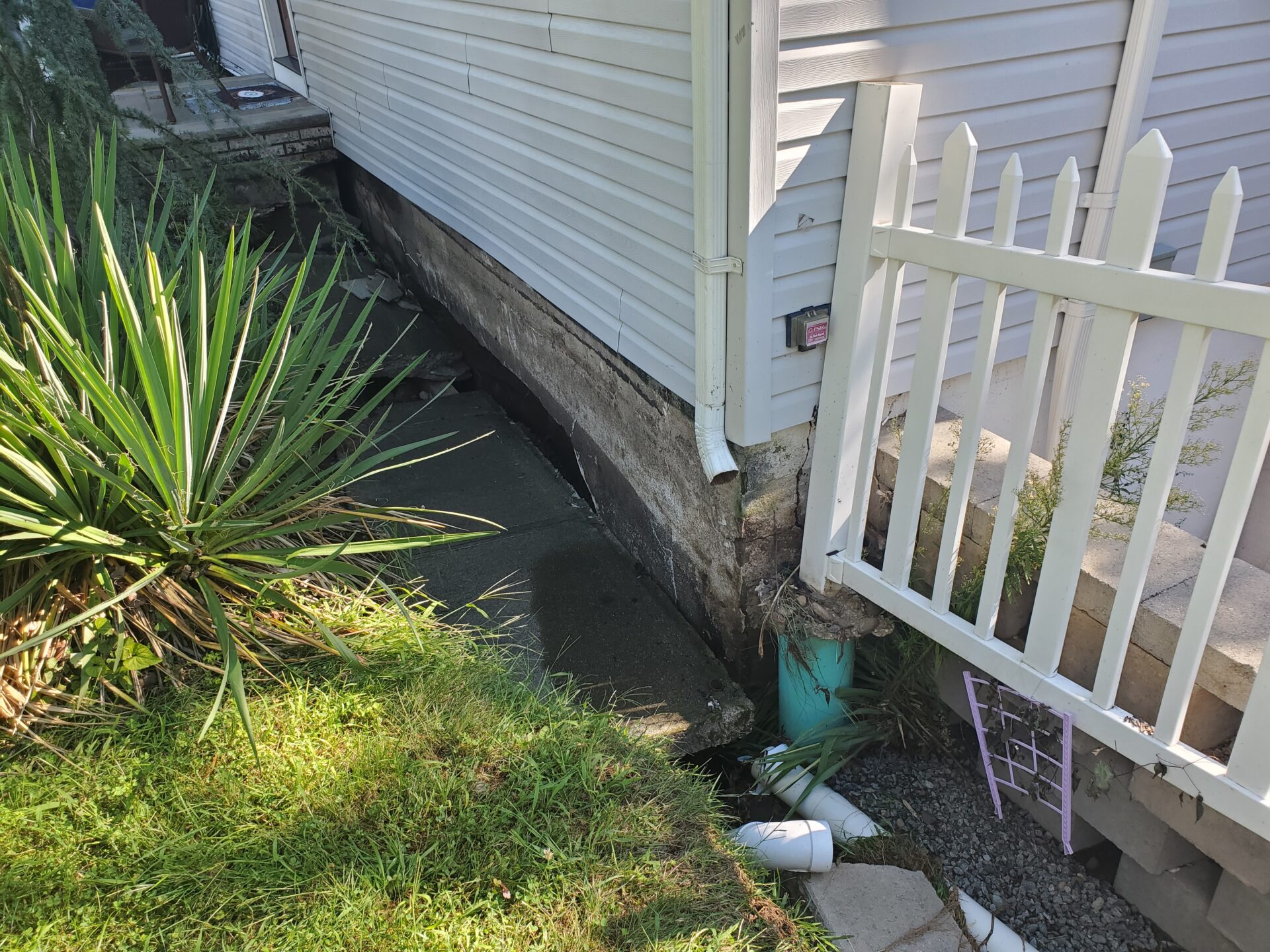Taking care of the foundation of your home is the most important thing a property owner can do. The structural integrity of a structure relies completely on a healthy foundation. Preventing any foundation issues can save you from major structural damage that will have a costly price to repair. But what causes your foundation to fail?
Water, Water, Water….
Most foundation issues are caused by water. Whether there is too much or too little water in the soil underneath your home, problems may arise if not dealt with properly and in a timely manner. If there is water entering your foundation walls, that will also cause foundation issues.
The Soil Beneath the Foundation Shrinks
When the weather is too hot and dry, the soil underneath a property may shrink. Additionally, large tree roots near the foundation will suck up large amounts of water from the ground on these hot and dry days making it more likely for your soil to dry and shrink. When your soil shrinks, it breaks away from your foundation and it makes the soil under the foundation uneven; subsequently, the foundation will begin to shift. This is specially a problem when it happens only on one side of the foundation. Signs that this is happening to your home may be cracks on walls, ceilings, and floors. An even more serious sign of this is trouble opening and closing windows. Differential settlement may be a normal thing for structures to experience, however, it may also be detrimental to your foundation. Getting a professional to look at your property when you suspect settling may save you from expensive repairs down the line.
The soil Beneath the Foundation Swells and Erodes
When water accumulated underneath your foundation, the soil swells and expands. This can happen for various reasons. It can happen if the structure is located on a slope and the draining system doesn’t work properly; it doesn’t divert water away from the structure the way it should. This makes it easier for heavy rainfall, melting snow, or flash floods to negatively impact the soil underneath your property. Improper placement of gutters and downspouts is another way for excessive amounts of water to infiltrate the soil under and around the home and cause swelling. Plumbing leaks and broken sewer lines are other factors that can cause swelling in your soil and subsequently create foundation problems. When the soil underneath and around your home gets saturated with water and swells, it pushes up on the foundation and can cause cracks in the walls, floors, and ceilings and uneven floors. If you notice pooling around your foundation, or sloping or bulging floors, calling a professional is the best way to prevent any serious structural damage with time.
Excessive water can also cause the soil underneath your foundation to erode and create voids in the soil. A very specific case of this issue are Sinkholes. Sinkholes happen when a layer of rock underneath the ground is dissolved by water. Sinkholes are dangerous to the structural integrity of a home’s foundation because these holes alter the support of the soil that the structure sits on. If you notice the poles and trees tilting towards a particular side, sunken and soft areas around the property, or are having trouble opening and closing doors, you may have foundation movement due to soil displacement. Getting a professional to take a look is important to ensure safety and structural integrity of your property before it’s too late.
Your Foundation Was Not Built Properly
It’s evident that soil is a key element in a structure’s health, so therefore, when building your property its crucial to ensure that professionals are taking into account the type of soil that will be underneath. Having more than one type of soil under the home can create serious issue; having one soil that tolerates water well and another that does not will increase the chances of differential settlement and that can cause severe structural issues in the long run. Having a professional take into consideration the type of soil that is under your home will prevent severe structural issues in the life cycle of the property.


